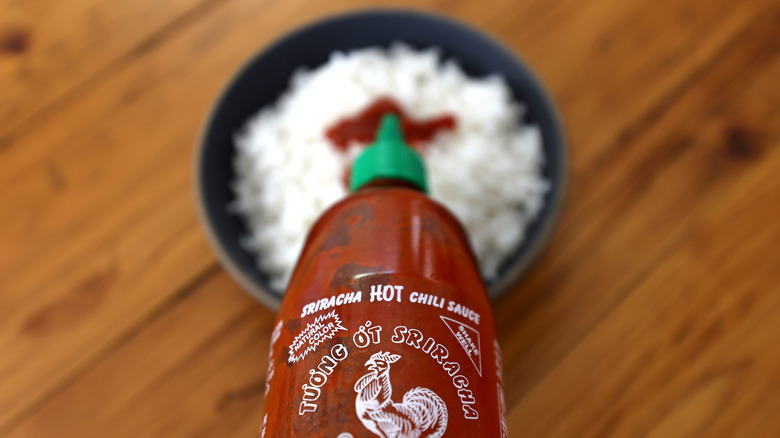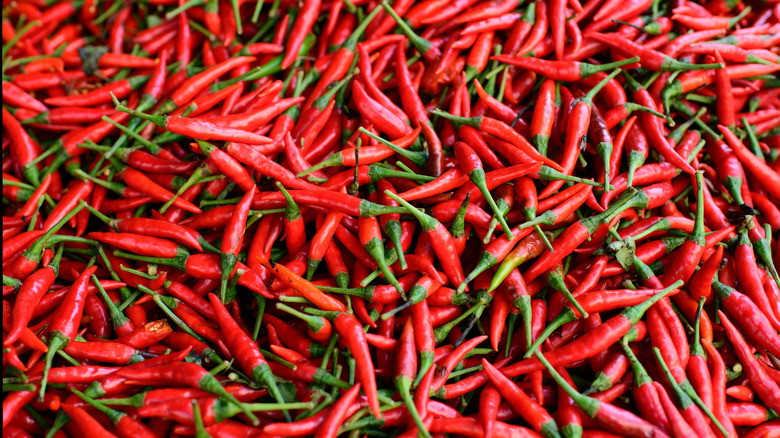Unexpected Side Effects Of Eating Sriracha
As far as condiments go, few can compete with the sweet and spicy sublimity of sriracha. With so much versatility and duality, you might call it the Gemini of the hot sauce world ... if you're into that kind of thing. Emanating from Si Racha, on the eastern coast of Thailand, the famous sauce employs the use of chilis, garlic, vinegar, sugar, and salt. This combination creates the signature, taste, color, and texture that sets it apart from other hot sauces (per Healthline).
Huy Fong's — the most notable brand of sriracha, recognizable by its bright green cap and rooster emblem — is actually a domestic brand. It was created by David Tran, a Vietnamese refugee who arrived in the U.S. in 1980 and started selling his "Americanized" sriracha out of the back of his van (per Fortune). It's become a fridge essential for many in the United States. With just 1 calorie and less than a gram of sugar per teaspoon, it may seem like the ideal condiment for people interested in watching what they eat. However, there are some unexpected side effects of sriracha hidden behind its velvet-like delectability. Let's take a closer look.
Sriracha's side effects
While the sugar content of sriracha might not set off alarms at first glance, Registered Dietician Pegah Jalali told Men's Journal that many sriracha lovers aren't consuming a mere teaspoon. Instead, she claims most people are using closer to a tablespoon per meal, which amounts to ¾ of a tablespoon of sugar, and 12% of the daily recommended amount of sodium for the day. Some sriracha brands also contain preservatives like sodium bisulfate, which can cause wheezing, hives, and upset stomach in people with sulfite sensitivities (per Eat This, Not That!).
Like all hot sauces and chili peppers, sriracha contains capsaicin, a compound that elicits the burning effect many know and love (per American Chemical Society). A 1992 study published in the Journal of Gastroenterology and Hepatology found that capsaicin slows the rate of gastric emptying, which can contribute to indigestion and acid reflux. Registered dietician Amanda Saucda explained that the same compound can also cause irritation in the gut which may send you running to the bathroom (per Eat This, Not That!).
Capsaicin does have some benefits
The effects of capsaicin aren't all bad. In fact, Healthline notes that the compound has long been celebrated for its health-promoting properties. Capsaicin is an analgesic — an effective pain reliever — as well as an antihistaminic, alleviating congestion and sneezing. It also stimulates metabolism and reduces inflammation. This can help sriracha-lovers burn fat, prevent obesity and diabetes, and improve symptoms of irritable bowel syndrome, as well as other chronic inflammatory diseases.



